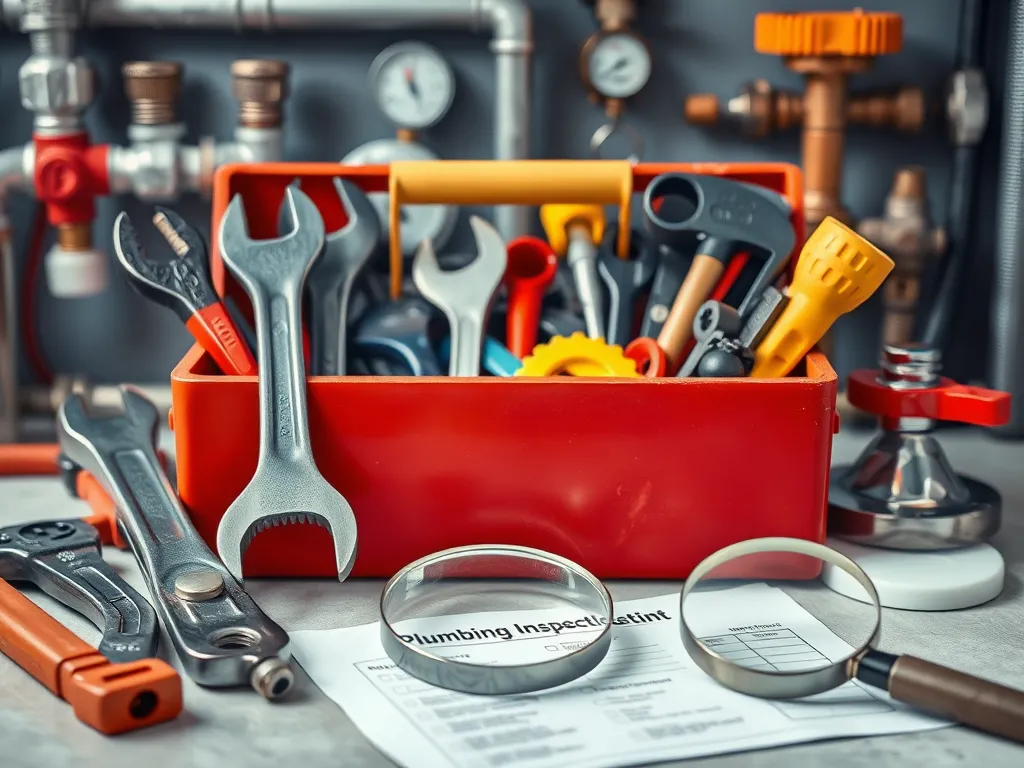Essential Plumbing Maintenance and Inspections Guide

Comprehensive Guide to Plumbing Maintenance and Inspections
Plumbing maintenance and inspections are essential aspects of home ownership that ensure the longevity and efficiency of plumbing systems. Regular maintenance helps in identifying potential problems before they escalate into costly repairs, thereby safeguarding your investment. From routine checks to addressing specific issues, understanding the importance of plumbing maintenance and inspections can save homeowners time and money.
Regular plumbing maintenance and inspections not only keep your home running smoothly but also promote safety within the household. Issues like leaks, clogged pipes, and faulty water heaters can lead to hazardous situations such as mold growth and water damage. By investing time in preventive plumbing measures and inspections, homeowners can maintain the integrity of their plumbing systems and enjoy peace of mind knowing that their homes are safe and healthy for their families.
Furthermore, comprehensive plumbing maintenance helps to improve overall water efficiency throughout the home, which can lead to reduced utility bills. Ensuring that your plumbing systems are in top shape also contributes to increasing the value of your property. Whether you’re planning to sell soon or not, maintaining your plumbing infrastructure is a wise investment that pays dividends in both comfort and cost savings.
Regularly scheduled Plumbing Maintenance and Inspections can prevent costly repairs and ensure the longevity of your plumbing system.
In summary, plumbing maintenance and inspections are not just about fixing issues when they arise; they are proactive steps to bolster the functionality and value of your home. By recognizing and addressing plumbing concerns early, you can avoid more significant problems and expenses down the line. Establishing a routine for plumbing checks is crucial for any homeowner looking to maintain their property effectively.
In this article, we will explore various facets of plumbing maintenance and inspections, including the importance of regular checks, common plumbing issues to inspect, DIY tips for maintaining your plumbing, professional services, and seasonal maintenance tasks that every homeowner should undertake to ensure their plumbing system remains in excellent condition.
Importance of Plumbing Inspections
Identifying leaks through inspections is a pivotal aspect of plumbing maintenance. Even seemingly minor leaks can lead to significant water damage and mold proliferation, affecting both your home's structure and your family's health. Regular inspections can pinpoint these leaks early, allowing for timely repairs that conserve water and money.
Preventative maintenance benefits cannot be overstated. By scheduling regular plumbing inspections, homeowners can discover potential problems before they become emergencies. This proactive approach not only minimizes disruption to daily life but also reduces repair costs significantly, as larger issues can often be addressed with simple fixes when caught early.
Improving home value with inspections plays a critical role when it comes time to sell your property. A well-maintained plumbing system that has been regularly inspected signifies to potential buyers that the home has been cared for. This can lead to greater buyer confidence and potentially a higher sale price.
Common Plumbing Issues to Inspect
Clogged drains are among the most common plumbing issues faced by homeowners. Signs of clogged drains include slow drainage, gurgling noises, and unpleasant odors. Regular inspections can help you identify early signs and clear any blockages before they escalate into significant issues.
Leaky faucets can be a nuisance and lead to wasted water and increased utility bills. During plumbing inspections, locating and repairing these leaks can save homeowners considerable money and contribute to environmental conservation. Ignoring drip from leaky faucets can result in costly repairs if left unaddressed.
Water heater maintenance checks are also vital. Ensuring your water heater is functioning correctly not only guarantees hot water when needed but also extends the lifespan of the unit. Inspections should include checking for rust, leaks, and sediment buildup that could impede operation.
DIY Plumbing Maintenance Tips
Regularly checking for leaks in visible pipes and connections can save significant repairs later on. Homeowners should routinely inspect under sinks and around toilets, as well as any exposed pipes in basements or crawl spaces. Early detection and repair of leaks conserve water and prevent further damage.
How to clean your drains is a key task every homeowner should undertake. Using natural methods like baking soda and vinegar can help maintain clear drains. Regularly cleaning your drains helps prevent buildup and the likelihood of clogs.
Inspecting water pressure at home is another essential maintenance task. Too high water pressure can damage pipes and fixtures, while too low can affect water flow. A simple gauge can be purchased at any hardware store to monitor water pressure easily.
Professional Plumbing Services
Choosing the right plumbing service is crucial. Homeowners should look for licensed, insured, and experienced plumbers to ensure quality service. Recommendations from friends or neighbors, as well as online reviews, can guide homeowners in their decision-making process.
During an inspection, expect the plumber to conduct thorough checks of your entire plumbing system. This includes pipes, fixtures, water heaters, drains, and sewers. They may also recommend maintenance practices and schedules to keep your plumbing in top shape.
DIY vs. professional maintenance presents a scenario many homeowners face. While simple tasks can often be handled alone, complex issues typically require the expertise of a professional. Understanding when to call a plumber for assistance can save time and prevent potential issues from worsening.
Seasonal Plumbing Maintenance Tasks
Winter preparation for plumbing is critical, especially in areas prone to freezing temperatures. Insulating exposed pipes and regularly checking heating systems can help prevent burst pipes and costly repairs during cold months.
Spring cleaning tips for plumbing include cleaning gutters, checking for leaks, and performing a general inspection of the exterior plumbing systems. It’s also a great time to clear any sediment from water heaters to improve efficiency.
Summer inspections for outdoor plumbing are vital as homeowners start using outdoor faucets, irrigation systems, and pools more frequently. Inspecting hoses and connections for leaks, as well as ensuring adequate drainage around the yard, helps maintain healthy outdoor plumbing systems.